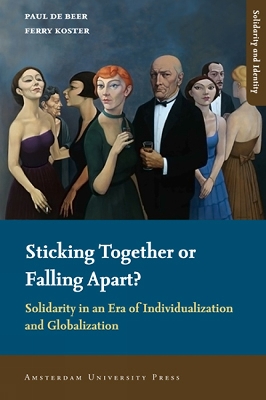Solidarity and Identity
1 total work
This book examines, both theoretically and empirically, the impact of globalization and individualization on social solidarity. It focuses both on informal solidarity, such as volunteering, charitable giving, and informal care, and on formal solidarity, such as social benefits and development aid. It challenges the common belief that social solidarity is endangered by the increasing competition and capital flows between countries and by growing selfishness of modern citizens. The book scrutinizes the theoretical arguments that both informal solidarity and social solidarity organized through the welfare state are eroding. Empirically, it is the first thorough study of international comparative data on solidarity, globalization and individualization. The book concludes that, overall, solidarity is rising rather than declining. The impact of globalization and individualization is much more ambiguous than is often contended. While particular aspects of globalization and individualization might harm solidarity, other elements foster solidarity instead.
